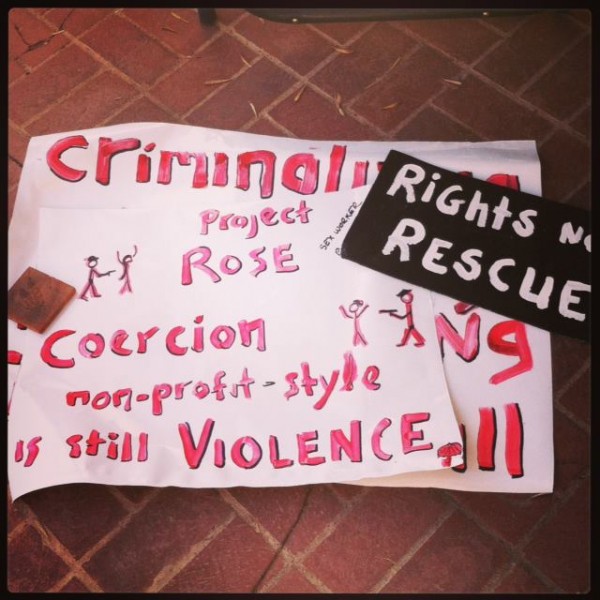Reporting on ROSE: A Journalist’s Work In Phoenix

We often have cause to complain about media coverage of sex work, but we haven’t had occasion to talk about how good stories can be edited into inadequate ones as they travel from reporter to final outlet. The fate of Jordan Flaherty‘s story about Project ROSE (Reaching Out to the Sexually Exploited) is a great opportunity to look at what happens when a journalist tries to show the public the whole story but is met with resistance from his employer.
Flaherty traveled to Phoenix in October to cover ROSE and the accompanying protests by SWOP-Phoenix. ROSE is a “concentrated arrest-alternative/intervention program for adult victims of prostitution or sex trafficking.” In practice, it’s mass arrest sweeps during which those taken into custody on prostitution charges are told they can either go through ROSE, starting with a trip to their headquarters at a church, or they can go to jail. And there are problems with the process, ones Flaherty wanted to make sure his finished work represented. Al Jazeera aired a version of his television segment that eliminated key information about ROSE, so Flaherty has made repeated attempts to get a fuller version of his reporting out to the public. He has encountered difficulty in doing so. I spoke with him last week at a time when his story had been posted on Truthout, but as of yesterday, Al Jazeera America has claimed copyright violation, requiring Truthout to remove the story from their site. The story is still available in a couple of other places. Another cut of the television piece is available although it’s not one Flaherty considers complete, either. This written version of the piece as aired is the only one remaining on Al Jazeera America.
Below is an edited Q&A that took place by phone on Monday, January 6th.
How did you first come across Project ROSE?
The issue of the legal treatment of sex workers is something I’ve been following for a while, especially these kinds of programs that say that they’re helping sex workers but are doing mass arrests. These programs have been getting very positive treatment and I was interested in looking at something like that with a more critical eye. When I heard about Project ROSE it just seemed like an example of the way in which people are conflating sex work and trafficking.



